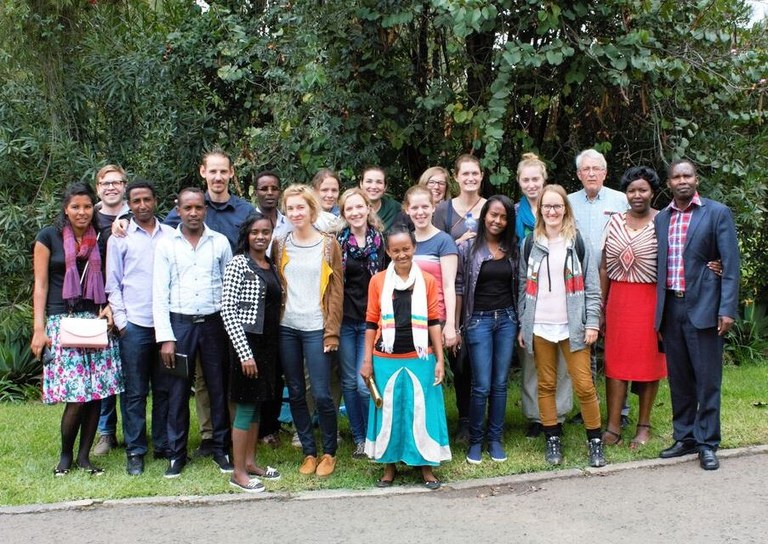Impressions from the Ethiopian-German study project in 2015
from 26th of August to 10th of September 2015
Value Chain Development for Food Security and Income Generation in the Context of Climate Change
The Case of Fresh Vegetables in Ethiopia
Abstract
This study examines smallholder-oriented constraints and opportunities within the vegetable value chain in the Upper Rift Valley in Ethiopia by analyzing its stakeholders, the enabling environment and supporting markets. The four-dimensional perspective focuses on the value chain development for food security and income generation in the context of climate change with a special focus on gender issues. Continuous governmental food aid, insecure livelihoods and decreasing groundwater levels, for instance, show growing importance of these four dimensions in the agricultural sector of the project area. Both an inductive and a deductive research approach are applied to ensure sufficient data for the research project. For the inductive part, a value chain analysis, using semi-structured interviews and non-participatory observations are conducted. The deductive part tries to test the hypotheses about the interlinkages between value chains and the four dimensions by secondary literature analysis and semi-structured expert-interviews. The results of the study show high interlinkages between the four dimensions and reveals the main challenges in the vegetable value chain. Women highly contribute to the agricultural labor force in the project area, but due to strong traditional gender role models they are not very well represented therein. Female-headed households face high sensibility to climate and market variations. Besides, severe water scarcity due to climate change and inefficient water management as well as lacking irrigation schemes are crucial problems for smallholders. They face unstable yields and income instability because of uncertainties caused by climate variability and price volatility. Regarding technical expertise, there is a huge knowledge gap and lacking access to technology, causing high transaction costs and inefficiencies. Deficient market integration, poor transparency and information asymmetries lead to high dependency on middlemen and a low income. In summary imperfect market conditions of vegetables with a high degree of informalities and the role and power of middlemen, are seen as main challenge of vegetable value chains in the project area. The study recommends to conduct a comprehensive market analysis in order to tackle the four-dimensional challenges identified.
Go to the final report.








